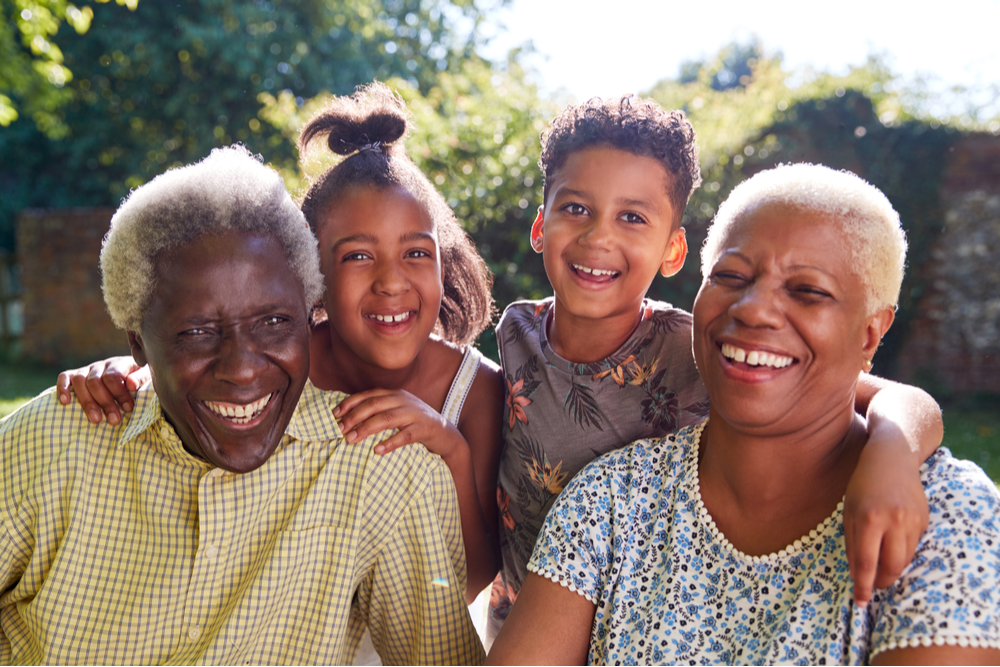The Journey to Joy: Black Community Leaders on Whole-Person Health

Q: Why is it important to address the whole-health needs of the Black community?
Ariel Wilson, LCSW-A, psychotherapist: Whole self-health refers to how we care for our mind, body, and spirit and acknowledge that these entities are connected and impact one another. In the last several years, there has been a shift in the paradigm as it relates to whole self-health within the African American community. We are recognizing the importance of addressing mental health and spiritual health as well as physical health.
Rochelle Ford, PhD, dean and professor at Elon University: Body, mind and spirit are all intertwined. But so are economics. When people’s bodies and minds are not well, they can’t work. When they lack economic resources, they can’t get access to quality health care. When they don’t have access, their mental and physical health declines. When they face economic, physical and mental health challenges, their spirits are challenged. We need healthcare, economic support structures and spiritual support to maintain a vibrant Black community.
Derek Rhodes, executive director of Durham Success Summit: When you do this work, you start tackling one specific problem but uncover deeper layers that are really all connected.
Q: How does your work help address whole-person health needs?
DR: Durham Success Summit focuses on career readiness and clarification for Black male youth 16-24. We have a set curriculum that focuses on everything from personal values, mission statements, and SMART goals training, but we start each session with a check-in. We sit in a circle and before we talk about anything career-related, each person has a chance to say what they’re “bringing in” with them. We provide a pathway for Black men to write their story, reflect on their identity, and understand their emotions.
AW: The work that I do as a Psychotherapist highlights the importance of addressing the whole person. During conversations with my clients, it is my responsibility to ensure they are caring for their physical health and mental health simultaneously.
RF: For us it’s often about the basics. Elon University provides all full-time employees health insurance. All employees have access to employee assistance programs, which includes mental health counseling and resource aides for child-care, legal and other life issues. All employees have access to exercise and other wellness classes. Every week we pause classes and meetings for the campus to focus on the spirit and mind. We also pause to build community.
Q: In your opinion, how has history played a role in shaping whole-health of the Black community?
AW: The relationship between African Americans and health care has been strained for some time, creating a lack of trust. We’ve either not had access to quality health care or were unknowledgeable about how to receive quality health care when there was access to it. There continues to be racial disparity within health care that continues to impact our community.
RF: Remnants of the Tuskegee Experiment still make many African Americans distrust medical providers, and bias in health care can result in poor treatment of African American patients. Racism is a public health crisis.
DR: We’re all learning more and more about our country’s history and the role of slavery for instance on generational trauma. As we uncover and collectively acknowledge more of that difficult history, it becomes increasingly important to find healthy ways to heal.
Q: What is something that you would like to share that shows we are moving in the right direction on addressing whole-health for the Black community?
RF: Mental health is becoming normalized in African American communities, so more Black and Brown people are seeking treatment for depression, anxiety and other mental illnesses. At Elon, we’re seeing more BIPOC students becoming mental health care providers like psychologists, psychiatrists, nurse practitioners and social workers.
DR: There has been a much-needed push around ensuring that African Americans have access to doctors, mental health leaders, and practitioners with lived experience, or those who look like us. At Durham Success Summit, we often say, “You can’t be what you can’t see.”
AW: It’s becoming easier to locate African American health care providers. This translates to cultural competency in health care and mental health and having providers that have a better understanding of the whole person from a cultural lens not just biological lens.
Q: There is often a lack of education or stigma surrounding whole-health, notably behavioral health in the Black community. What’s one thing you’d say to help people understand the connection between whole-person care/behavioral health care?
RF: When your mind is not right, people will often try to self-medicate. We see that people do not often know how to handle these life challenges, but talk therapy can often help with that.
AW: In recent years, there has been a shift in the conversation toward accepting that mental health is important. Aristotle stated, “The whole is greater than the sum of its parts.” In reference to whole self-health, this means that physical health, mental health, and spiritual health are separate, but they are connected to one another. They cannot work to the best of their ability without the other.
DR: We can’t be ready for our seat at the table if we aren’t thinking about and bringing our whole, healthy self to it.







